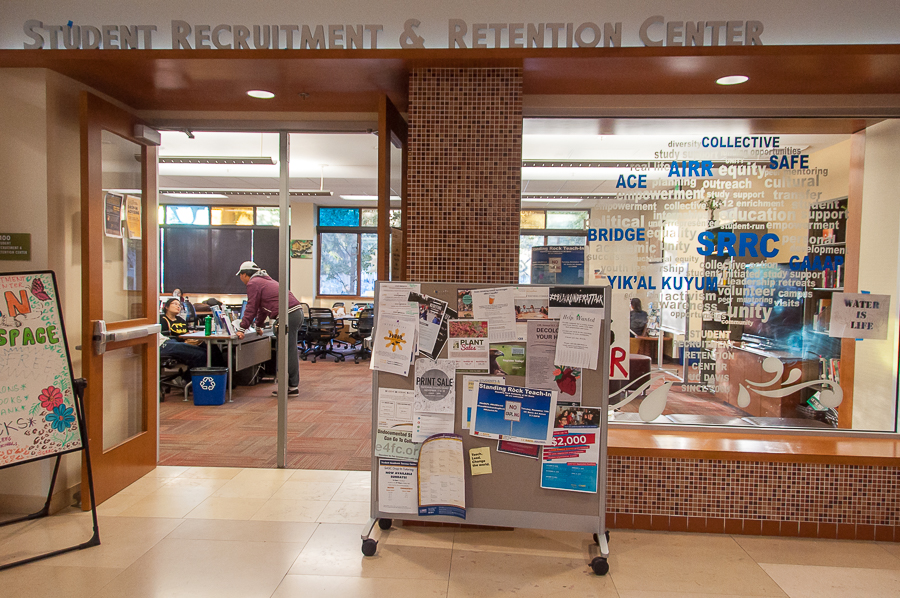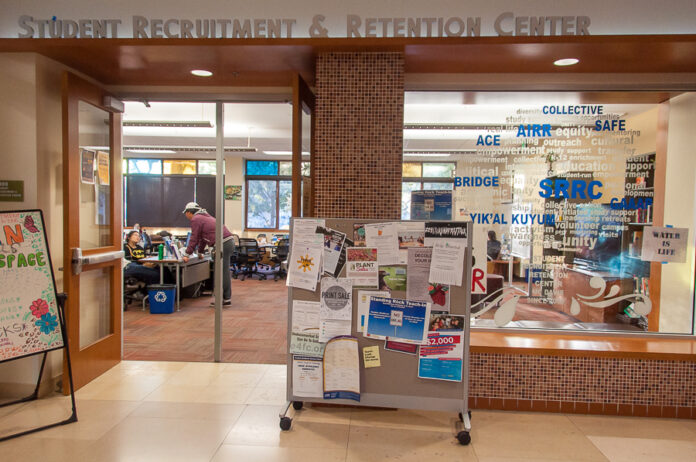
 Stereotypical depictions of Native Americans perpetuate historic mistreatment
Stereotypical depictions of Native Americans perpetuate historic mistreatment
Right around this time of year, elementary school students craft paper hats complete with colored feathers and buckles, trace hand-shaped turkeys and don’t learn about the truth behind Thanksgiving. This past Thursday, families across America prepared turkey, mashed potatoes, gravy, stuffing and still didn’t learn about Thanksgiving.
Right about now, we go to class, study, work, go about our daily lives and still don’t acknowledge the injustices that Native Americans face today. This, of course, is just an extension of the historic mistreatment of Native American tribes and our unwillingness as a country to own up to how we marginalize these groups.
Children may learn about pilgrims, “Indians” and the first Thanksgiving, but it’s a narrative told through a white lens: Christopher Columbus discovered America and the Indians helped the pilgrims. Then everyone had a wonderful feast and it all worked out without any conflict.
Schools conveniently neglect to mention the genocide of almost an entire population of people. Reparations and small slivers of land alone won’t fix this damage or change how many people perceive and treat Native Americans today.
And while we can’t necessarily tell young children stories of mass murder and rape, we also shouldn’t exploit these stories and twist the narrative so that the portrayals are completely inaccurate. That’s wrong. And these misrepresentations silence the voices of those who have been brushed aside and forgotten for far too long.
Stereotypes, prejudice and discrimination against Native Americans are nowhere near gone. If anything, it’s even more obvious now how little significance we place on Native American tribes and their cultures.
Native Americans are used as sport mascots and team names. Their culture is stolen from them and used for Halloween costumes or festival-inspired outfits. In film and television, they are depicted stereotypically or are just absent altogether.
This suggests that Native Americans are just characters who serve no greater purpose than as a stereotype, unworthy of being heard or seen. These portrayals are ubiquitous and only serve to perpetuate the notion that Native Americans aren’t real people with real stories.
But a people aren’t a mascot, costume or stereotype. To depict Native Americans as such dehumanizes them and can have adverse effects. Clearly, systemic prejudice and dismissal of Native Americans is still prevalent. Mocking and using their people and culture for entertainment and aesthetic purposes is salt in a wound that hasn’t even healed.
Furthermore, appropriation of Native American culture takes away from even more significant issues facing their communities, like poverty and a lack of educational and job opportunities. These injustices may not be as public as the use of a racist team mascot, but they can be much more impactful. The United States Census Bureau reported Native Americans have the highest poverty rate of any ethnic group — 28.3 percent, compared to the national average of 15.5 percent. Poverty and education can affect a multitude of other factors that determine quality of life — available job opportunities, physical and mental health, food security.
The high school dropout rate among Native Americans aged 16 to 24 was 11 percent in 2012, the second highest after Latinx/Chicanx groups, according to the Pew Research Center.
This needs to be seriously addressed.
While there is no direct correlation between these factors and the portrayal and treatment of Native Americans in our society, it’s certainly not just a coincidence. Poverty and high school dropout rates among white people were far less than those of nondominant groups. There’s an institutional hierarchy of importance in U.S. society, and Native American groups have been pushed to the bottom rung of that ladder.
Thanksgiving and beyond, we need to acknowledge these issues. If we continue to blindly and apathetically take part in a holiday without considering the history behind it, we only perpetuate and allow these inaccurate depictions and stories to exist. These issues need to be addressed, and until they are, the wounds of Native Americans won’t heal.
Written by: Jeanette Yue — jyyue@ucdavis.edu
Disclaimer: The views and opinions expressed by individual columnists belong to the columnists alone and do not necessarily indicate the views and opinions held by The California Aggie.




